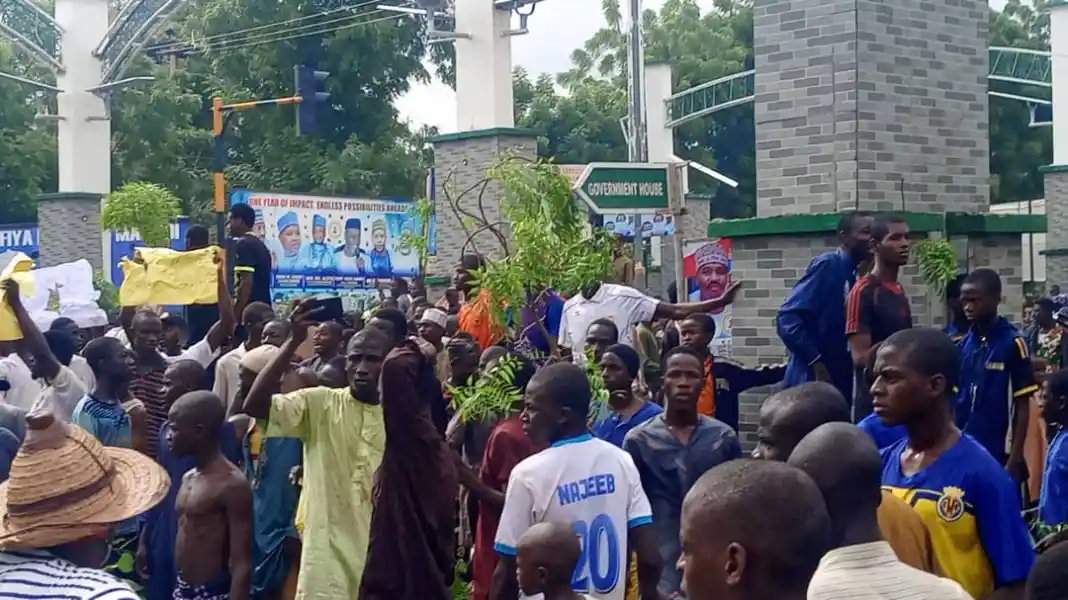This blog post is based on the original special topic “Tariffs on critical minerals in the electric vehicle value chain” of the World Tariff Profiles 2024.
The shift towards clean energy technologies and electric vehicles (EVs) is gaining momentum as the world seeks to combat climate change. This transition requires increased use of critical minerals, such as cobalt, graphite and lithium, which are essential components of EV batteries. However, the use of escalating tariffs in EV production chains could be a factor preventing developing economies from diversifying their exports and moving up the value chain.
Clean energy technologies rely heavily on a variety of minerals. For example, solar power extensively uses copper, aluminium, cadmium, tellurium and selenium, while wind power requires copper, rare earth elements, chromium, zinc and aluminium. The production of EVs and their batteries requires aluminium, copper, cobalt, graphite, nickel, lithium, manganese and rare earth elements.
As a result of the global shift toward clean energy technologies and EVs, the demand for certain critical minerals, such as cobalt, graphite and lithium (minerals that are plentiful in developing economies), is expected to grow significantly. Projections suggest a fivefold increase in demand for these minerals by 2050 due to their intensive use in new energy technologies.
Stages for critical minerals in EV value chain
The EV value chain for cobalt, graphite and lithium consists of five stages: extraction of raw minerals, processing of minerals, production of electrodes for batteries, manufacturing of batteries, and production of EVs (see Table 1). Trade flows for critical minerals occur at each stage of this value chain.
Table 1: Stages for critical minerals in the EV value chain and corresponding Harmonized System (HS) codes
| Processing stage | Cobalt (HS codes) |
Graphite (HS codes) |
Lithium (HS codes) |
|---|---|---|---|
|
1. Extraction and initial treatment of ores (raw minerals or minerals that underwent only initial treatment). |
260500 |
250410 |
253090 |
| 2. Processing and refining of minerals to produce battery-grade materials. |
282200 |
380110 |
282520 |
| 3. Production of electrodes for batteries (cathode materials). |
284190 |
854519 |
284169 |
| 4. Manufacturing of battery cells and packs. |
850760 |
||
| 5. Production of electric and hybrid vehicles. |
870240 |
||
Tariffs and tariff escalation
Tariffs on products related to the EV value chain can vary across different processing stages and between economies. In general, the tariffs on battery packs and EVs are considerably higher than those on raw minerals and battery minerals, with a clear pattern of tariff escalation moving up the value chain. Figure 1 summarizes the tariffs applied by economies at different levels of development on critical minerals throughout the EV value chain.
Developed economies tend to have lower tariffs across all stages of the EV value chain. However, their tariffs rise across the supply chain, with the highest tariffs applied to processed and finished goods. This potentially hinders the ability of developing economies to move up the value chain.
More than three-quarters of the economies surveyed exhibit rising tariffs from the first to the fifth processing stages although the extent varies widely. In nearly all cases, the highest tariffs are applied in stage 5 (see Figure 2).
Tariff escalation is already evident in the agricultural and textile sectors. Figure 2 underlines that it represents a similar challenge to economies trading in critical minerals. Flattening tariffs alone might not be sufficient to influence choices regarding the location of high-value processing activities, but it is a crucial step towards supporting the transition to clean energy and enabling sustainable development.
To capitalize on the demand for critical minerals, developing economies need to attract investment for refining and processing facilities. They also need increased technology transfer to enhance local capabilities to participate in higher-value stages of the EV supply chain. In addition, they need to ensure fair distribution of the benefits derived from trade in mineral resources by strengthening governance and to balance economic gains with environmental and social considerations by adopting sustainable practices.
Conclusion
Developing economies with rich mineral resources stand to benefit from the increase in demand for cobalt, graphite and lithium, but a well-functioning multilateral trading system, supported by a fair system of tariffs at a lower level, is essential to enable these economies to participate more fully in the global EV value chain. Addressing tariff escalation and fostering sustainable development practices in the critical minerals sector could lead to structural transformation in developing economies, creating a more level playing field and improving living standards in these economies.
Further information on this topic is provided in World Tariff Profiles 2024, co-published by the WTO, International Trade Centre (ITC) and UN Trade and Development (UNCTAD). Launched on 25 July, the publication provides comprehensive information on the tariffs and non-tariff measures imposed by over 170 countries and customs territories.
This blog post is based on the original special topic “Tariffs on critical minerals in the electric vehicle value chain” of the World Tariff Profiles 2024.
By Theresa Carpenter, Samuel Munyaneza and Ralf Peters at UN Trade and Development (UNCTAD)




